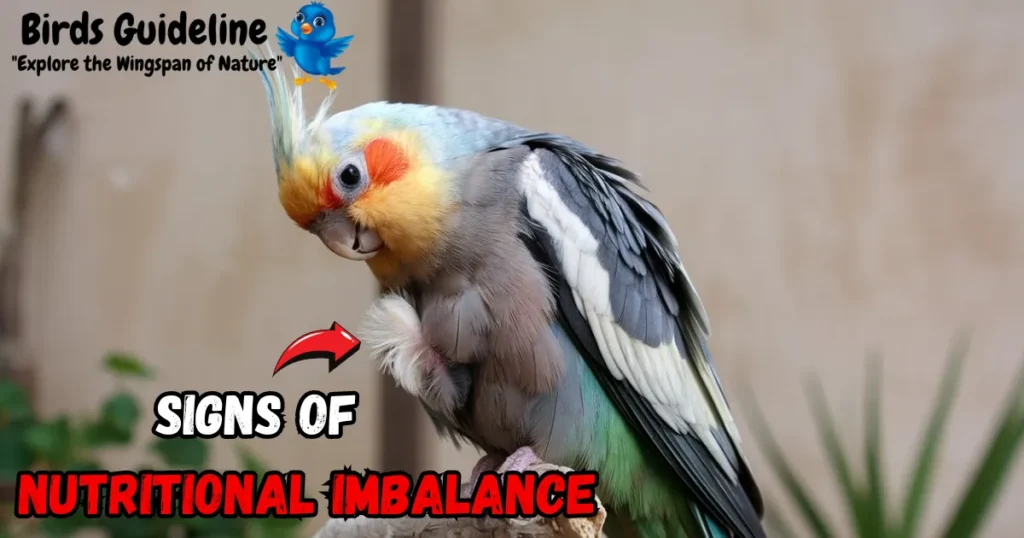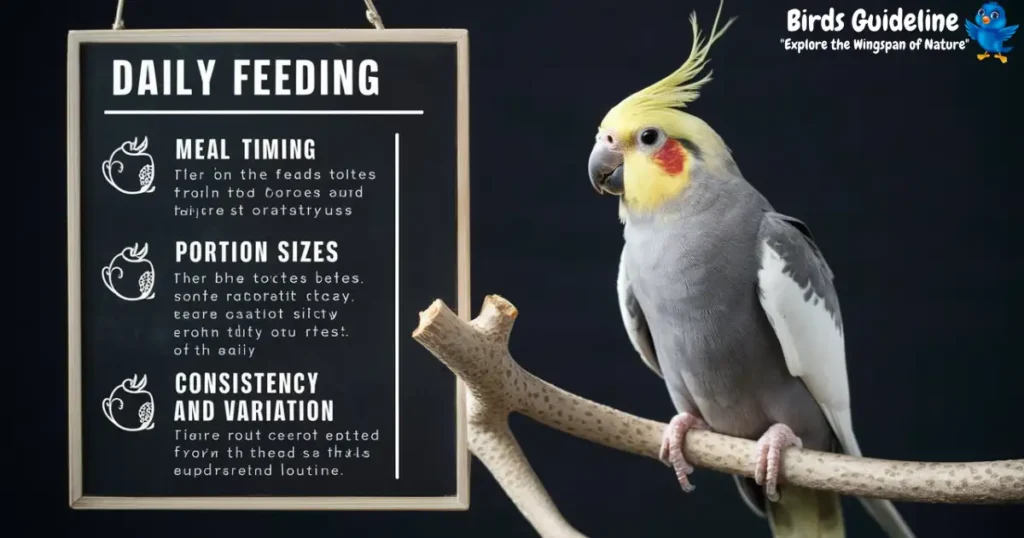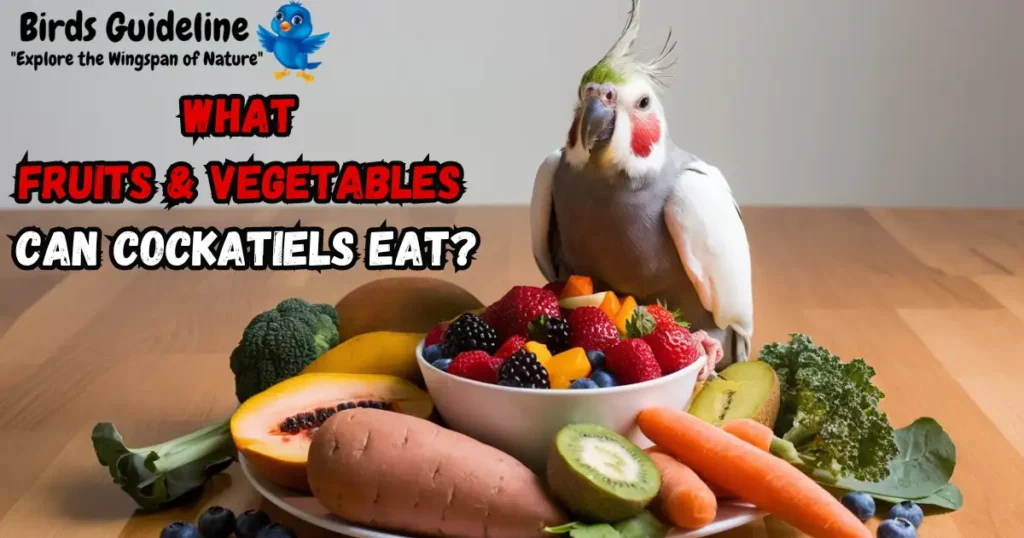Yes, cockatiels can eat carrots. Carrots are a nutritious snack for these birds. As a bird wildlife expert, I’ve gathered some fascinating facts about how carrots can benefit your cockatiel. Want to know how to serve them? Let’s look at why this veggie is a top choice for your bird’s plate!
Nutritional Value Of Carrots
Carrots are a super food for cockatiels. They are packed with nutrients that can help keep your bird healthy and happy. Let’s dive into the nutritional value of carrots and understand why they are a great addition to your cockatiel’s diet.
Vitamins And Minerals
Carrots are packed with vitamins and minerals that are essential for the overall health of cockatiels. Here are some key nutrients found in carrots:
- Vitamin A: This is vital for good vision, skin, and immune health.
- Vitamin K: Important for blood clotting and bone health.
- Vitamin C: Supports the immune system and acts as an antioxidant.
- B-vitamins: Aid in energy metabolism.
Here is a table highlighting the key minerals in carrots:
| Mineral | Benefit |
|---|---|
| Potassium | Regulates blood pressure and hydration levels. |
| Calcium | Essential for strong bones and teeth. |
Health Benefits
The health benefits of feeding carrots to cockatiels are many. Let’s look at a few:

- Improved Vision: Vitamin A in carrots is known to boost eye health.
- Strong Immune System: The antioxidants in carrots help fight off infections.
- Healthy Skin and Feathers: Vitamins A and C keep the skin and feathers in top condition.
- Optimal Growth: The nutrients in carrots support healthy growth and development.
Including carrots in your cockatiel’s diet can lead to better health and well-being. Always introduce new foods gradually and in moderation to make sure it suits your bird. Carrots can be a nutritious, tasty treat for your feathered friend!
Can Cockatiels Eat Carrots?
Are you wondering if your feathered friend can munch on carrots? Can cockatiels eat carrots? Absolutely! Carrots are a nutritious snack packed with vitamins and minerals beneficial for cockatiels. Let’s dive into the best ways to serve carrots to these birds, considering their texture, organic nature, and the right serving suggestions.
Raw Vs Cooked
Cockatiels can enjoy both raw and cooked carrots, but there are differences to consider. Raw carrots are crunchy and can help keep a cockatiel’s beak in healthy. Cooked carrots, on the other hand, are softer and easier to eat. Here’s a quick look:
- Raw Carrots: High in fiber, aiding in digestion.
- Cooked Carrots: Softer texture, easier to chew and digest.
While both forms are safe, raw carrots should be washed thoroughly to remove any pesticides. Cooking carrots can reduce their nutritional content slightly, but they remain a healthy treat. The choice between raw or cooked ultimately depends on your cockatiel’s preference.
Organic Vs. Non-organic
When it comes to carrots for your cockatiel, the choice between organic and non-organic can be important. Organic carrots are grown without synthetic pesticides and fertilizers, making them a safer option. Non-organic carrots might contain residues of these chemicals. Here’s what to consider:
| Organic Carrots | Non-Organic Carrots |
|---|---|
| Fewer chemicals | Potential pesticide residue |
| Often more expensive | More affordable |
Providing organic carrots guarantees that your cockatiel isn’t exposed to potential toxins. If non-organic carrots are your only option, wash them well or peel them to reduce chemical exposure.
Serving Suggestions
Offering carrots to your cockatiel is easy with these serving suggestions. Remember, moderation is key, and carrots should be part of a balanced diet. Here’s how to serve them:
- Chop raw carrots into small pieces that are easy to pick up.
- Steam or boil carrots until soft, then cool them before serving.
- Mix carrots with other safe veggies for variety.
Frequency of offering carrots should be controlled. A few small pieces a couple of times a week is sufficient. Always observe how your cockatiel reacts to new foods and adjust accordingly. With these tips, your cockatiel can safely enjoy the crunchy goodness of carrots!
Preparing Carrots For Cockatiels
Carrots are a tasty and healthy snack for cockatiels. They are full of vitamins. But, we need to prepare them right. Let’s learn how to do it.

Washing And Cutting
First, we must clean and cut the carrots properly. This guarantees they are safe and easy for cockatiels to eat. Follow these steps:
- Rinse the carrots under cold water. This removes dirt and chemicals.
- Scrub with a clean brush if they are not peeled. This helps to clean them better.
- Peel the carrots if you prefer. Some choose to leave the skin on for extra nutrients.
- Cut the carrots into small pieces. Thin slices or small cubes are best. This makes it easy for cockatiels to eat.
Remember, small pieces are key. They prevent choking and make it fun for cockatiels to eat.
Cooking Methods
Most cockatiels like their carrots raw. But, cooking can make them softer and easier to eat. Here are some safe ways to cook carrots for cockatiels:
- Boiling: Put carrot pieces in boiling water. Cook for 3-5 minutes. This makes them soft but not mushy.
- Steaming: Steam carrot pieces until they are soft. This method keeps more nutrients than boiling.
After cooking, let the carrots cool down completely. Then, they are ready for your cockatiel to enjoy. Always offer cooked carrots in small amounts. This is because raw foods are more natural for them.
Remember: Never add salt or spices to the carrots. These can be harmful to cockatiels. Always serve them plain.
Potential Risks
Cockatiels enjoy a variety of foods, and carrots can be a healthy addition to their diet. But, like with any new food, there are potential risks to consider. These risks can range from mild to severe and understanding them is key for a pet owner. Let’s dive into the specifics to keep our feathered friends safe and happy.
Allergies
While rare, cockatiels can develop allergies to certain foods. Introducing carrots to your bird’s diet should be done gradually. Watch for signs of an allergic reaction. Symptoms might include:
- Skin irritation around the beak or face
- Feather plucking or excessive preening
- Changes in droppings
- Respiratory distress, like coughing or sneezing
If you notice these signs, remove carrots from your cockatiel’s diet immediately. Consult a vet if symptoms persist. For a better understanding, here’s a table of common signs and actions to take:
| Signs of Allergy | Recommended Action |
|---|---|
| Skin Irritation | Stop feeding carrots |
| Feather Plucking | Consult a vet |
| Abnormal Droppings | Monitor closely |
| Respiratory Issues | Seek immediate vet care |
Digestive Issues
Carrots are high in fiber, which is generally good for digestion. However, too much can cause digestive issues in cockatiels. When feeding carrots, do so in moderation. Signs of digestive discomfort include:
- Loose droppings or diarrhea
- Reduced appetite
- Vomiting or regurgitation
- Changes in dropping color
Introduce carrots slowly into their diet to prevent these issues. Here’s a simple guideline to follow:
- Start with a small piece of carrot.
- Monitor your cockatiel for 24-48 hours.
- If no issues, gradually increase the amount.
Keep an eye on your bird’s behavior and droppings. This will help you spot any problems early. If digestive issues arise, reduce or eliminate carrots from their diet and consult your vet.
Signs Of Nutritional Imbalance
Cockatiels can enjoy a variety of foods, including carrots. These colorful veggies are packed with nutrients that can benefit your feathered friend. But, it’s crucial to watch for signs of nutritional imbalance. These signs help you make sure your cockatiel stays healthy and strong. Let’s look at some key indicators that something might be off in your pet’s diet.

Behavior Changes
When a cockatiel’s diet isn’t quite right, the first clues often show up in their behavior. Keep an eye out for these tell-tale changes:
- Decreased Energy: If your bird is less active or spends more time resting, it might not be getting the right nutrients.
- Feather Plucking: This can be a sign of stress or dietary deficiency.
- Changes in Appetite: A sudden increase or decrease in food intake is a red flag.
These symptoms suggest your cockatiel may need a diet adjustment. Including a balanced mix of seeds, pellets, fruits, and vegetables like carrots can help. But remember, every bird is unique! Monitor their behaviors closely after dietary changes to make sure they’re thriving.
Physical Symptoms
Physical symptoms are often more obvious indicators of a nutritional imbalance. Here’s what to watch for:
| Symptom | Possible Nutritional Deficiency |
|---|---|
| Dull Feathers | Lack of vitamins and minerals |
| Weak Beak or Claws | Insufficient calcium or vitamin D3 |
| Weight Loss or Gain | Imbalance in calorie intake |
Regularly including carrots in your cockatiel’s diet can provide essential vitamins like A and K, which support good vision and bone health. But, balance is key. Make sure your bird gets a varied diet to prevent these physical symptoms and promote overall well-being.
Frequently Asked Questions
Yes, cockatiels can eat raw carrots. These vegetables offer valuable nutrients and can be a healthy part of their diet. Always serve carrots in small, manageable pieces.
Yes, birds can safely eat raw carrots, which provide beneficial nutrients. Make sure to chop them into small, manageable pieces to prevent choking.
Cockatiels enjoy a variety of vegetables including carrots, broccoli, spinach, and peas. Leafy greens like kale and lettuce are also great options. Always serve these veggies fresh and chopped for easy consumption. Remember to wash them thoroughly to remove any pesticides or contaminants before feeding.
Conclusion
To sum up, carrots are a nutritious snack for your feathered friend. They’re packed with vitamins essential for a cockatiel’s health. Always serve them in moderation and properly prepared. Your pet will enjoy the crunchy texture and the flavor boost to its diet.
Remember to consult with a vet for personalized dietary advice.



